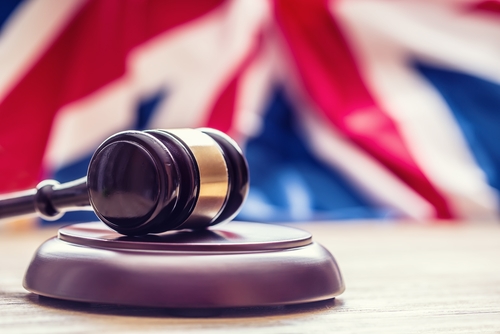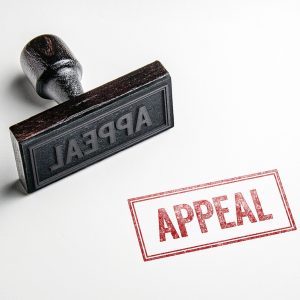
Professional Service
UKIPO OPINIONS
The UKIPO offers an opinion service, allowing interested parties to ask a UKIPO Examiner to indicate whether a UK patent, or a European patent having effect in the UK, is valid and/or infringed by a particular act. The UKIPO aims to issue opinions within about 3 months, and the cost of requesting an opinion is relatively low. This means the opinion service provides a quick and low-cost means of obtaining an official view on the validity and/or infringement of a UK or European patent.
To request a UKIPO opinion, it is necessary to notify the UKIPO of the question on which an opinion is sought (validity or infringement), the requester’s position on that question, and the evidence upon which that position is based. The request will then be published by the UKIPO so third parties, including the patent proprietor (if the proprietor is not the party requesting the opinion), can file observations in reply within a 4-week period. The requester will then be notified of any observations filed and will be given a further 2-week period to file observations in response. The UKIPO will then issue its opinion shortly afterwards.
For those wishing not to disclose their identity to the patent proprietor, it is possible to remain anonymous by allowing us to request the opinion in our name.
Additionally, if a UK (or European) patent is found to be invalid by the Examiner and the UKIPO is sufficiently confident in this conclusion, the UKIPO may (at its discretion) revoke the UK patent (or the UK designation of a European patent), allowing costly revocation proceedings before the UK courts to be avoided.
Despite the clear value and advantages of the UKIPO opinion service, it is often overlooked, with fewer than 30 opinions typically being requested each year. We have direct experience of requesting UKIPO opinions and are happy to work with you to get an opinion on a patent you are interested in.
PROFESSIONAL SERVICE
UKIPO Hearings
Examination of a UK patent application may involve a hearing before a Hearing Officer at the UKIPO. Hearings may also be held at the UKIPO at the end of a trade mark opposition, and in cases where there is a dispute over ownership of and/or entitlement to a patent or patent application.
Whatever the reason for the hearing, it is vital to present and argue the best case carefully, clearly, and in close alignment with the most recent law and procedures. We can take these cases, presenting at the hearing ourselves and, importantly, knowing when at other times to work directly with specialist counsel.
We also provide pre-hearing advice on strategy, prospects, and costs to plan for all eventualities.

IPO Hearings Team
Our team have direct experience of conducting hearings at the UKIPO, focussed recently on entitlement proceedings in relation to UK and International patent rights and on defending oppositions against registered UK trade marks.
Recent Insights
Read the latest insights from the Schlich team reporting recent cases and updates from the UKIPO.
Highstreet Wars: From Portobello Road Market to the High Court
Two Portobello Road Market traders battle it out in the High Court for the rights to the brand, “The Notting Hill Shopping Bag.” The decision of the court serves as a cautionary tale of the importance of protecting intellectual property rights when dissolving or transferring a company.
Supreme Court Provides Reality Check on Post Sale Confusion
Can the way a logo appears on a pair of football boots lead to trade mark infringement? The answer to this question and further clarification on the concept of “post-sale confusion”, was provided in Iconix v Dream Pairs, a case that recently reached the UK Supreme Court. In its judgment, the Court offered long-awaited clarification on whether a likelihood of consumer confusion must arise at the point of sale, or whether confusion occurring later, such as when a logo is seen on the side of football boots from the sideline of a football pitch, can also be relevant in determining infringement.
Mind the Gap (between agreements and trade marks)
A recent UKIPO Decision, between Transport for London and high street fashion retailer, GAP, regarding the renowned London Underground catchphrase “MIND THE GAP” has highlighted the importance of ensuring that prior agreements are adhered to when filing new trade mark applications.
Safestand stands taller as Court of Appeal finds trestle designs valid
The recent Court of Appeal decision in Safestand Limited v Weston serves as a reminder of the importance of ensuring that representations provided as part of a design application are clear and consistent so as to ensure that upon an objective assessment, the representations are found to relate to a single product and not a collection of different embodiments.
UK to Second Medical Use SPCs: Thanks, But No Thanks
Background of Supplementary Protection Certificates (SPCs) SPCs are heavily relied on by pharmaceutical companies to extend the period of patent protection. Under the current regulations, SPCs can only be granted if the product is: 1) protected by a basic patent in force; 2) a marketing authorisation has been issued to place that product on the […]
What’s next for Halloumi Producers after their High Court Grilling?
The Foundation for the Protection of the Traditional Cheese of Cyprus named Halloumi, recently lost their latest Appeal in the High Court. What are their next steps for protecting their rights?
Court of Appeal uphold majority of Tesco vs Lidl Appeal
The Court of Appeal upheld the decision in relation to passing off and trade mark infringement but did make some comments on the trial judge’s “surprising” findings of fact.
The UKIPO confirms that an SPC is for the product in the marketing authorisation on which it is based and not further uses for the product
It is well known that a pharmaceutical product can find alternative uses than the application for which it was originally developed. Furthermore, further patents can be granted to additional usage and dosage regimes for such pharmaceutical products. The question considered by the Hearing Officer in this case was whether a marketing authorisation for a single active compound (safinamide) was also sufficient to support a supplementary protection certificate (SPC) application for the use of safinamide in combination with levodopa/PDI for the treatment for Parkinson’s disease.
Get in touch

Our team of UK and European Patent Attorneys and Chartered Trade Mark Attorneys are highly knowledgeable and experienced in assisting clients with all aspects of their IP needs.
Contact us now to find out more about how we could help you and your business.














